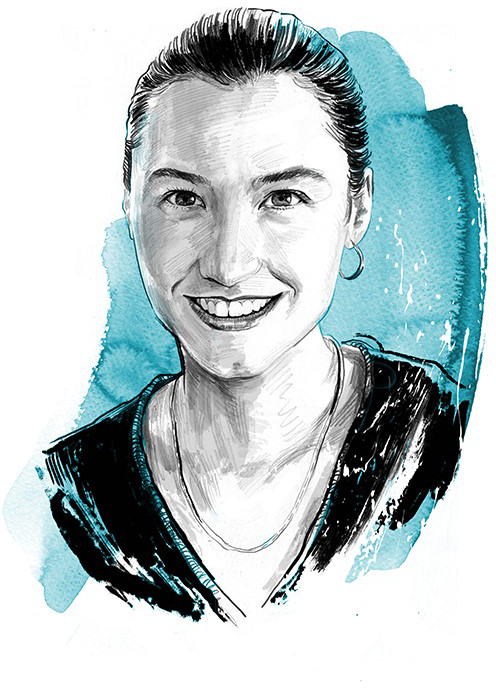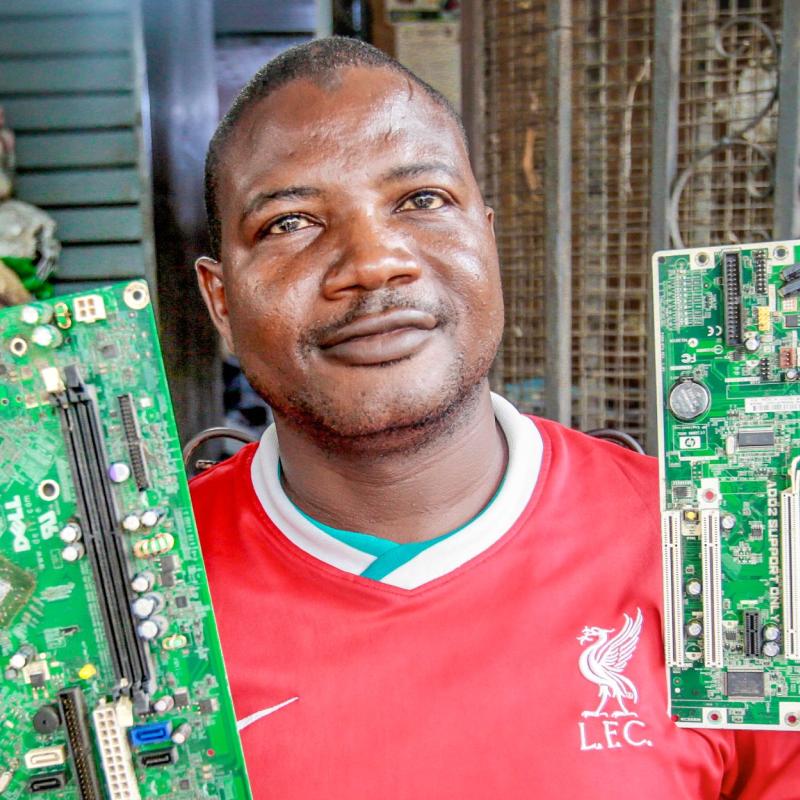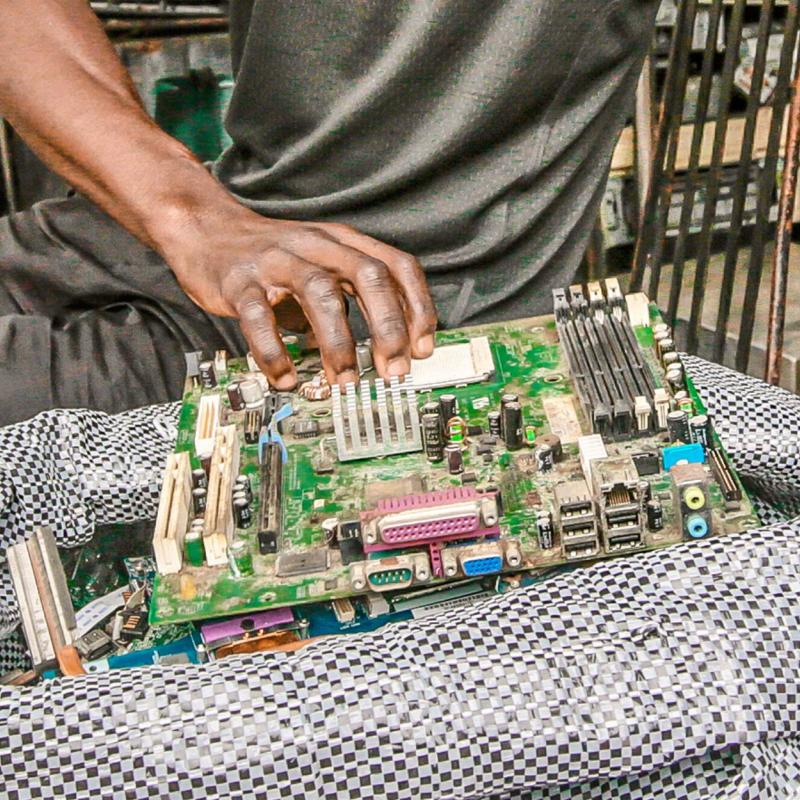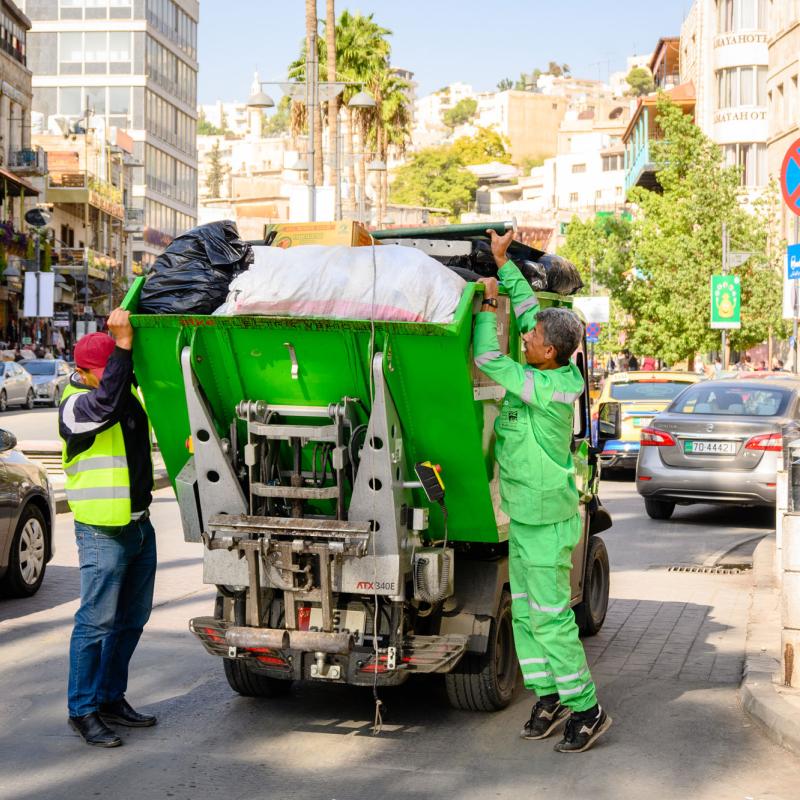The Circular City Labs project, financed by the German Federal Ministry for Economic Cooperation and Development (BMZ), promotes the setting up of economically viable recycling systems as part of the circular economy. This reduces both waste and greenhouse gas emissions. The accelerator programmes in Albania, Colombia, Georgia and South Africa bring together companies, municipal administrations and universities in order to explore the potential for reusable packaging and to develop corresponding business models. Special focus is placed on the participation of women and women entrepreneurs in local circular economies.
‘Making the mountain of waste disappear’
Three questions for Ana Maria Villegas, start-up entrepreneur in Colombia. With GIZ support, the design expert has developed a recycling concept for the food service sector and launched it successfully onto the market under the Xiclo label.

Ms Villegas, where did you get the idea to set up a reusable tableware service in Colombia?
During the COVID-19 pandemic, I often ordered food to eat at home and was exasperated by the amount of plastic waste I was helping generate. I thought there had to be a better alternative! So together with my brother, who is a software developer, I came up with a recycling concept. Every container used for food delivery is given a code, which we can then track. The e-bike couriers pick up the used dishes directly from the customers, and we take care of the cleaning. The restaurants are not involved with that at all. We supply them with clean tableware on a regular basis.
How did GIZ support you along the way?
GIZ supported us as a pilot measure in the Circular City Labs project. I first took part in a four-month accelerator programme for start-ups with ideas for the circular economy, and was then picked out for further support because our concept was financially sound and workable. The support enabled us to improve our software and grow the business. After starting in Bogotá, we are now also operating in Medellín. With GIZ as partner, we were able to start working in catering at a university there and now have 75,000 students as customers.
What are the next steps?
In the long term, we plan to operate internationally. First of all, in 2025 we want to start awarding licences for our software. For licence holders, adopting our concept is then a very simple step. Reusable crockery is easy to purchase, and cleaning and logistics are also easy to organise. Starting in 2026, we will also be supplying tableware to public-sector schools in Bogotá. The school canteens serve 70,000 meals every day – all on disposable plates and dishes up to now. I’m proud that my idea is helping eliminate this mountain of waste.


